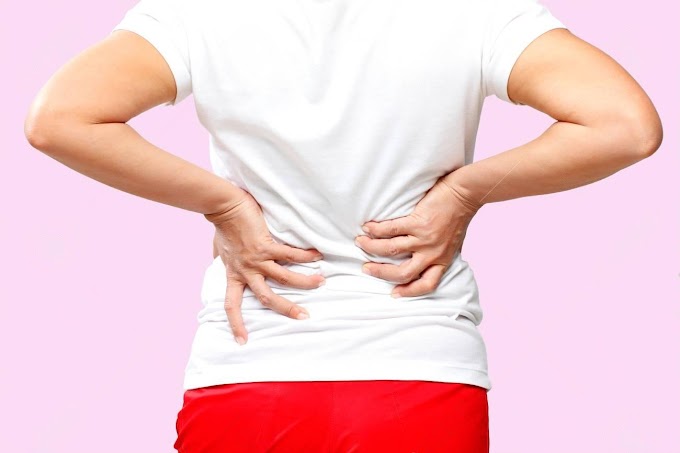 |
| Source Image : Pinterest |
Dyspepsia is a digestive disorder commonly known by the common people as ulcer disease. Find out the causes, symptoms, treatment, and prevention of dyspepsia here.
What is Dyspepsia?
Dyspepsia is a group of digestive symptoms that usually appear simultaneously after a meal. The condition is usually characterized by discomfort or pain around the upper abdomen. Dyspepsia is not a disease. Occasional ulcers are normal. Almost everyone has experienced an ulcer at least once in their lifetime. But for some people, this digestive problem is a daily occurrence that can reduce quality of life. In these cases, the ulcer may be triggered by an underlying disease, such as gastroesophageal reflux disease (GERD), gastritis or gallbladder disease.
Symptoms of Dyspepsia
Dyspepsia always occurs after a meal, when the stomach is digesting.
A typical symptom of ulcer disease is a burning or stinging sensation in the upper abdomen, between the bottom of the breastbone and the navel. It usually occurs a few minutes or hours after eating.
Common heartburn characteristics are:
- Feeling full too soon or too long after finishing a meal
- Flatulence
- Nausea
- Belching and passing gas
- Regurgitation (when swallowed food comes back up)
- Acid reflux (stomach acid rising into the esophagus)
- Stomach heartburn
- Loud growling or gurgling in your stomach
- Burning sensation in the esophagus
- Bitter taste in the mouth
Sometimes people with ulcers also experience heartburn. Heartburn is pain or burning in the center of the chest that may radiate to the neck or back during or after a meal.
Causes of Dyspepsia
There are many possible causes of dyspepsia or ulcer disease. Often, indigestion is lifestyle-related and may be triggered by food, drink or medication.
Common causes of dyspepsia are:
- Overeating or eating too fast
- Eating when stressed or as an outlet for stress
- Eating fatty, oily or spicy foods
- Too much caffeine, alcohol, chocolate or soda drinks
- Smoking
- Anxiety
- Certain antibiotics, pain relievers (ibuprofen), and iron supplements
Sometimes, ulcer symptoms are caused by other conditions, such as:
- Gastritis (inflammation of the stomach)
- Stomach ulcers
- Celiac disease
- Gallstones
- Constipation
- Pancreatitis (inflammation of the pancreas)
- Gastric cancer
- Intestinal blockage
- Intestinal ischemia (reduced blood flow in the intestine)
- Diabetes
- Thyroid disease
- Pregnancy
In rare cases, ulcer disease can be a sign of a more serious illness, such as stomach cancer.
Diagnosis
Your doctor diagnoses dyspepsia based on your medical history, physical examination, upper gastrointestinal endoscopy and other tests. Your doctor may also ask about your eating and drinking habits, use of over-the-counter and prescription medications, and whether you smoke. During the physical examination, the doctor may also perform:
- Examine the abdomen to check for bloating or not
- Listen to abdominal sounds using a stethoscope
- Tapping or pressing the abdomen to check for pain and lumps
The doctor may also perform an endoscopy of the upper digestive tract to diagnose diseases and conditions that may be causing ulcer disease, such as:
- Inflammation of the stomach (gastritis)
- Peptic ulcer disease
- Gastric cancer
Other tests that your doctor may perform include:
- Imaging tests, such as abdominal ultrasound, to look for diseases and conditions in the digestive tract that may be causing indigestion.
- Testing for H. pylori bacteria through blood, stool, or urea breath tests or by performing an upper gastrointestinal biopsy
Dyspepsia Treatment
Treatment usually depends on the cause of the symptoms. Generally, the lifestyle changes below can help alleviate the symptoms of heartburn:
- Avoiding foods that trigger indigestion
- Eating five or six small meals a day instead of three large meals
- Reducing or stopping alcohol and caffeine consumption
- Quitting smoking
- Avoiding certain pain medications, such as aspirin, ibuprofen and naproxen sodium
- Trying psychological therapies to help deal with anxiety, depression or stress that may be causing frequent flare-ups of ulcer disease
Doctors can also usually prescribe some non-prescription medications such as, antacids or some other prescription gastric medications to lower stomach acid production, antidepressants if dyspepsia is caused by psychological issues, and antibiotics if it is caused by a bacterial infection.
Prevention of Dyspepsia
The best way to prevent this digestive disorder is to avoid foods and situations that are likely to cause it. Here are some other ways of prevention:
- Eat small meals but more often.
- Chew food slowly and thoroughly before swallowing.
- Do not chew with your mouth open, talk while chewing, or eat too fast. This can lead to excessive ingestion of air, exacerbating your symptoms.
- Avoid drinks and foods that can trigger indigestion, such as caffeine, alcohol, sodas, citrus fruits, tomatoes, spicy foods, and fried or fatty foods.
- Do not lie down immediately after eating. Wait at least 3 hours after your last meal before going to bed.
- Sleep with your head 15cm above your stomach. This will help the stomach acid go down the intestines instead of up the esophagus. You can keep it up with a pillow.
- Quit smoking.
- Maintain an ideal body weight.
- Exercise regularly to help the stomach digest food better.
Consult your doctor immediately if your ulcer symptoms worsen or if you experience new symptoms even after taking non-prescription ulcer medications.
It is best to go to the nearest emergency room if any of the following symptoms accompany your ulcer:
- Difficulty swallowing
- Shortness of breath
- Chest tightness
- Bloody stools
- Vomiting blood
- Persistent nausea and vomiting
- Weight loss for no apparent reason
Thanks for reading this article.



.jpg)

